- Clone
- NC-08 (See other available formats)
- Regulatory Status
- RUO
- Other Names
- T1a, T1a2, gp36, gp38, gp40, Aggrus, PDPN, D2-40
- Isotype
- Rat IgG2a, λ
- Ave. Rating
- Submit a Review
- Product Citations
- publications
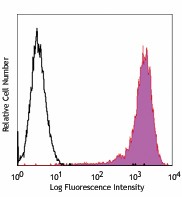
-

Human glioblastoma cell line LN319 stained with NC-08 PE
| Cat # | Size | Price | Quantity Check Availability | Save | ||
|---|---|---|---|---|---|---|
| 337003 | 25 tests | 153 CHF | ||||
| 337004 | 100 tests | 360 CHF | ||||
Podoplanin is a 40-43 kD type-I transmembrane sialomucin-type glycoprotein, also known as T1a, gp36, gp38, gp40, and Aggrus. Originally detected on the surface of podocytes, futher characterization showed podoplanin has a broad tissue distribution, including mesothelial cells, epithelial cells, follicular dendritic cells, and a variety of tumor cells. It has been reported that podoplanin is the ligand of CLEC2 and is involved in lymphatic vessel formation, platelet aggregation, and tumor metastasis. Podoplanin may serve as a useful marker for tumor diagnosis and prognosis.
Product DetailsProduct Details
- Verified Reactivity
- Human
- Antibody Type
- Monoclonal
- Host Species
- Rat
- Formulation
- Phosphate-buffered solution, pH 7.2, containing 0.09% sodium azide and BSA (origin USA)
- Preparation
- The antibody was purified by affinity chromatography, and conjugated with PE under optimal conditions.
- Concentration
- Lot-specific (to obtain lot-specific concentration and expiration, please enter the lot number in our Certificate of Analysis online tool.)
- Storage & Handling
- The antibody solution should be stored undiluted between 2°C and 8°C, and protected from prolonged exposure to light. Do not freeze.
- Application
-
FC - Quality tested
- Recommended Usage
-
Each lot of this antibody is quality control tested by immunofluorescent staining with flow cytometric analysis. For flow cytometric staining, the suggested use of this reagent is 5 µl per million cells in 100 µl staining volume or 5 µl per 100 µl of whole blood.
- Excitation Laser
-
Blue Laser (488 nm)
Green Laser (532 nm)/Yellow-Green Laser (561 nm)
- Application Notes
-
Additional reported applications (for the relevant formats) include: immunofluorescence1.
-
Application References
(PubMed link indicates BioLegend citation) -
- Fujino N, et al. 2012. Am. J. Respir. Cell. Mol. Biol. 46:422. (FC, IF)
- Product Citations
-
- RRID
-
AB_1595457 (BioLegend Cat. No. 337003)
AB_1595457 (BioLegend Cat. No. 337004)
Antigen Details
- Structure
- 40-43 kD type-I transmembrane sialomucin-type glycoprotein
- Distribution
-
Broad tissue distribution, including mesothelial cells, epithelial cells, follicular dendritic cells, and many tumor cells
- Function
- Lymphatic vessel formation, tumor metastasis, platelet aggregation
- Ligand/Receptor
- CLEC2
- Cell Type
- Dendritic cells
- Biology Area
- Cancer Biomarkers, Cell Biology, Immunology, Neuroinflammation, Neuroscience, Neuroscience Cell Markers
- Antigen References
-
1. Raica M, et al. 2008. Anticancer Res. 28:2997.
2. Xie Q, et al. 2008. Int. J. Clin. Exp. Pathol. 1:276.
3. Ogasawara S, et al. 2008. Hybridoma. 27:259.
4. Kato Y, et al. 2003. J. Bio. Chem. 278:51599. - Gene ID
- 10630 View all products for this Gene ID
- UniProt
- View information about Podoplanin on UniProt.org
Related FAQs
- What type of PE do you use in your conjugates?
- We use R-PE in our conjugates.
Other Formats
View All Podoplanin Reagents Request Custom Conjugation| Description | Clone | Applications |
|---|---|---|
| Purified anti-human Podoplanin | NC-08 | FC,IHC-P,ICC,SB |
| PE anti-human Podoplanin | NC-08 | FC |
| Alexa Fluor® 647 anti-human Podoplanin | NC-08 | FC |
| Alexa Fluor® 488 anti-human Podoplanin | NC-08 | FC |
| PE/Cyanine7 anti-human Podoplanin | NC-08 | FC |
| Biotin anti-human Podoplanin | NC-08 | FC |
| PerCP/Cyanine5.5 anti-human Podoplanin | NC-08 | FC |
| Alexa Fluor® 594 anti-human Podoplanin | NC-08 | ICC |
| TotalSeq™-A0127 anti-human Podoplanin | NC-08 | PG |
| APC/Cyanine7 anti-human Podoplanin | NC-08 | FC |
| APC/Fire™ 750 anti-human Podoplanin | NC-08 | FC |
| FITC anti-human Podoplanin | NC-08 | FC |
| APC anti-human Podoplanin | NC-08 | FC |
| PE/Dazzle™ 594 anti-human Podoplanin | NC-08 | FC |
| TotalSeq™-C0127 anti-human Podoplanin | NC-08 | PG |
| TotalSeq™-B0127 anti-human Podoplanin | NC-08 | PG |
| TotalSeq™-D0127 anti-human Podoplanin | NC-08 | PG |
Customers Also Purchased
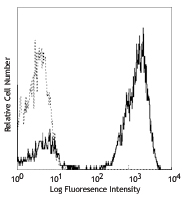
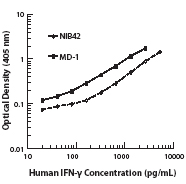

Compare Data Across All Formats
This data display is provided for general comparisons between formats.
Your actual data may vary due to variations in samples, target cells, instruments and their settings, staining conditions, and other factors.
If you need assistance with selecting the best format contact our expert technical support team.
-
Purified anti-human Podoplanin

SeqIF™ (sequential immunofluorescence) staining on COMET™ of... 
IHC staining of Purified anti-human Podoplanin (clone NC-08)... 
IHC staining of Purified anti-human Podoplanin (clone NC-08)... -
PE anti-human Podoplanin
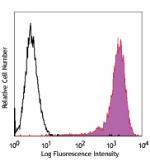
Human glioblastoma cell line LN319 stained with NC-08 PE -
Alexa Fluor® 647 anti-human Podoplanin
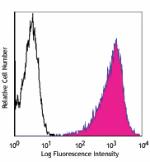
Human glioblastoma cell line LN319 stained with NC-08 Alexa ... -
Alexa Fluor® 488 anti-human Podoplanin
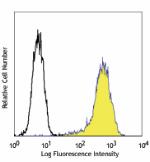
Human glioblastoma cell line LN 319 stained with NC-08 Alexa... -
PE/Cyanine7 anti-human Podoplanin
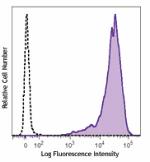
Human glioblastoma cell line LN319 was stained with podoplan... -
Biotin anti-human Podoplanin
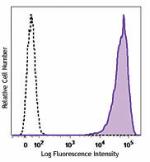
Human glioblastoma cell line LN319 was stained with biotinyl... -
PerCP/Cyanine5.5 anti-human Podoplanin
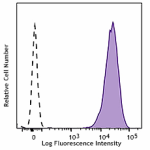
Human glioblastoma cell line LN319 was stained with podoplan... -
Alexa Fluor® 594 anti-human Podoplanin
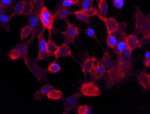
Human glioblastoma cell line, LN319 were fixed with 1% paraf... -
TotalSeq™-A0127 anti-human Podoplanin
-
APC/Cyanine7 anti-human Podoplanin
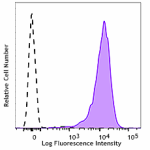
Human glioblastoma cell line LN319 was stained with podoplan... -
APC/Fire™ 750 anti-human Podoplanin
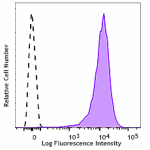
Human glioblastoma cell line LN319 was stained with podoplan... -
FITC anti-human Podoplanin
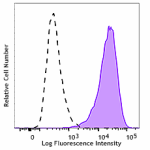
Human glioblastoma cell line LN319 was stained with podoplan... -
APC anti-human Podoplanin
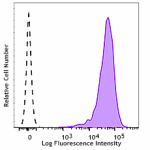
Human glioblastoma cell line LN319 was stained with podoplan... -
PE/Dazzle™ 594 anti-human Podoplanin
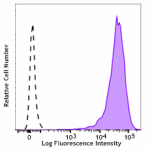
Human glioblastoma cell line LN319 was stained with podoplan... -
TotalSeq™-C0127 anti-human Podoplanin
-
TotalSeq™-B0127 anti-human Podoplanin
-
TotalSeq™-D0127 anti-human Podoplanin
 Login / Register
Login / Register 









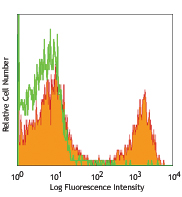



Follow Us